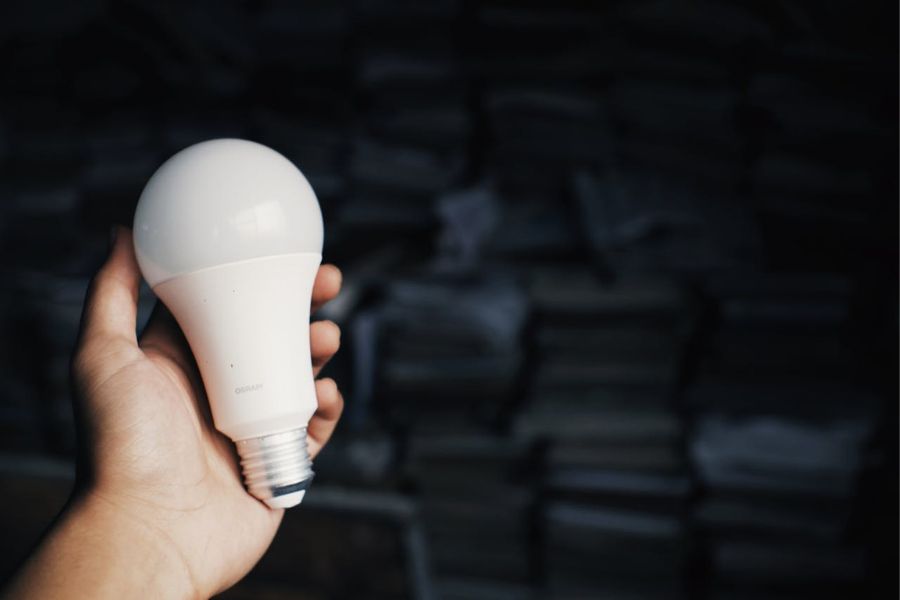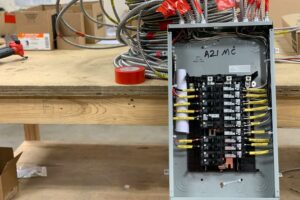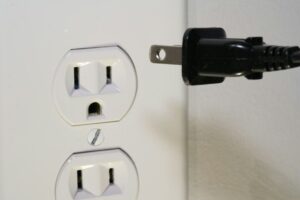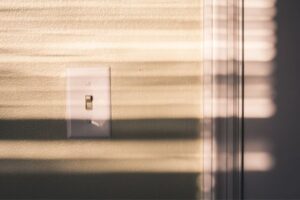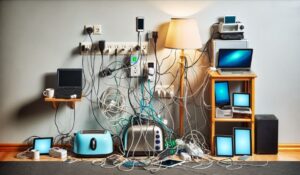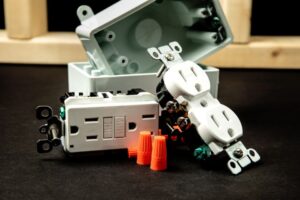It can be extremely frustrating to experience failures of light bulbs multiple times in your home or business. We frequently get calls from residents in our area to ask why a certain light bulb keeps burning out. Based on our experience, we’ll provide some quick suggestions here:
Your light bulb may keep burning out due to several factors such as high voltage, poor electrical connections, or frequent on/off cycles. Additionally, using the wrong type of bulb for your fixture or having excessive vibrations can also shorten the bulb’s lifespan.
Truly diagnosing the issue may require a bit more information. Regardless, ensuring proper installation and matching the bulb specifications with your fixtures can help prevent premature burnouts.
Why do my light bulbs keep burning out?
The first thing we would ask a home or business owner who is experiencing multiple failures of light bulbs is whether bulbs are continually burning out in the same socket, or different sockets. The diagnosis of the issue, and the solutions, may differ dramatically:
If your light bulbs keep burning out in the same socket
If your light bulb keeps burning out in the same socket, several potential reasons:
- Faulty socket
- Loose electrical connections
- Improper installation
- Excessive heat buildup
- Fixture not rated for bulb wattage
- Frequent vibrations or shocks
- Voltage fluctuations in the electrical supply
How to check and fix
If your light bulbs keep burning out in the same socket, it’s likely something with the match between socket and bulb.
First, make sure that the bulb is properly installed and that the fixture is rated for the bulb’s wattage to prevent excessive heat buildup. If the fixture is subject to frequent vibrations or shocks, such as in ceiling fans or high-traffic areas, consider using vibration-resistant bulbs. Observe whether you see the light bulb flickering after you turn it back on.
While you’re at it, check the socket for any visible signs of damage or wear and ensure it is clean and free from debris. If you see any loose electrical connections, tighten them to create a stable electrical environment.
If the above DIY solutions don’t work, it’s a sign you should call an electrician to inspect your electrical supply for voltage fluctuations, as these can contribute to bulb burnout. Taking these steps can help extend the lifespan of your light bulbs and ensure a more reliable lighting solution.
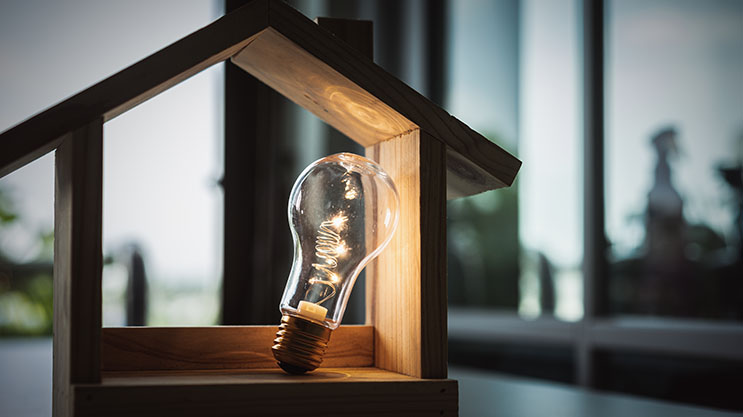
If your light bulbs keep burning out in different sockets
If your light bulbs keep burning out in different sockets, then there’s likely a deeper electrical issue at play. Though it’s possible that you could determine the source of your trouble yourself, this is likely where you’d want to get an electrician involved.
Potential causes of burnt out light bulbs in multiple sockets:
- High voltage in the electrical system
- Poor quality or defective bulbs
- Frequent on/off cycles
- Excessive vibrations or physical shocks
- Overheating due to improper fixture ventilation
- Incompatible dimmer switches
- Power surges or electrical spikes
- Using bulbs with incorrect wattage
- Loose or corroded electrical connections
- Aging or outdated wiring in the building
How to check and fix
If your light bulbs keep burning out in different sockets, there are several steps you can take to address the issue.
Before searching for a deeper issue, take a look at the bulbs you’re using. Ensure that you’re using high-quality, reliable bulbs, as poor-quality or defective bulbs tend to have shorter lifespans. Additionally, minimize frequent on/off cycles to reduce stress on the bulbs.
Ensure that fixtures are properly ventilated to prevent overheating, and avoid using bulbs with incorrect wattage. If you’re using dimmer switches (especially older dimmer switches), make sure they are compatible with your bulbs.
If these fixes don’t work for you, you can use a multimeter to check your electrical system for high voltage through the electrical panel, as this can cause bulbs to burn out quickly.
Address any power surges or electrical spikes by installing surge protectors. Inspect and tighten any loose or corroded electrical connections.
Consider having a licensed electrician examine your wiring to ensure it is up-to-date and in good condition. Taking these steps can help extend the lifespan of your light bulbs and provide a more reliable lighting solution.
Extra considerations if you’re using LED bulbs
If you’re wondering why your LED light bulbs keep burning out, then there are some extra considerations. LEDs can burn out prematurely if there’s an incompatible dimmer switch, as they require specific types of dimmers.
Poor heat dissipation due to enclosed fixtures or insufficient ventilation can also affect their lifespan. Ensuring proper ventilation, using compatible dimmers, and verifying that the fixture supports LED bulbs can help maintain their longevity.
When to get an electrician involved
We’re aware that we’ve just thrown out quite a few suggestions to you. Note that we do not recommend doing any DIY electrical work if you’re uncomfortable with it, or if you’re inexperienced with handling electrical work.
If you’ve got multiple electrical issues going on simultaneously, such as outlets that don’t work, or buzzing light switches, we recommend you skip the DIY phase and simply get a professional involved.
We recommend you call an electrician and have them provide an assessment for you if:
- You suspect high voltage issues in your electrical system.
- There are frequent power surges or electrical spikes.
- You notice loose or corroded electrical connections that you’re unable to safely tighten yourself.
- You need to check and possibly upgrade your wiring for better reliability.
- You want to ensure that your dimmer switches are compatible with your bulbs and properly installed.
- You need professional advice on improving ventilation for fixtures to prevent overheating.
An electrician can diagnose and resolve these issues more safely and more quickly that most homeowners.


